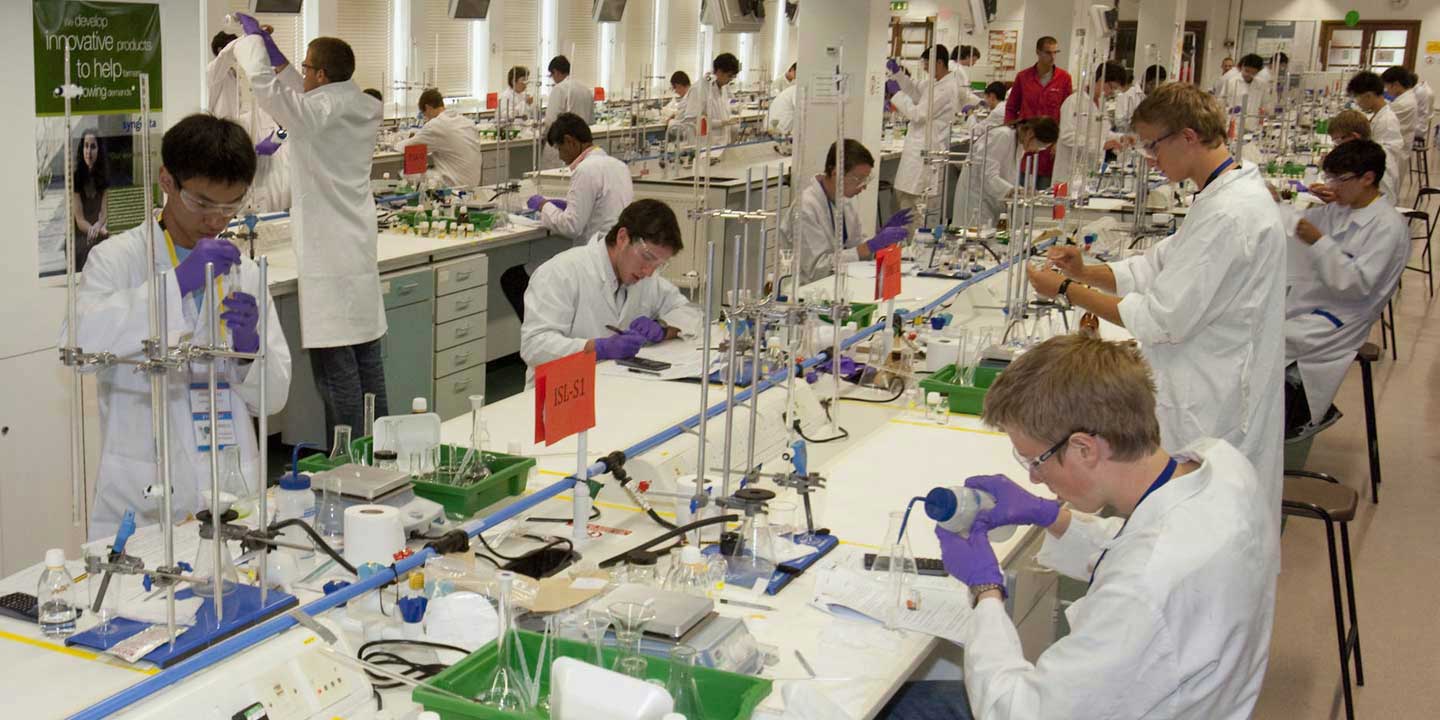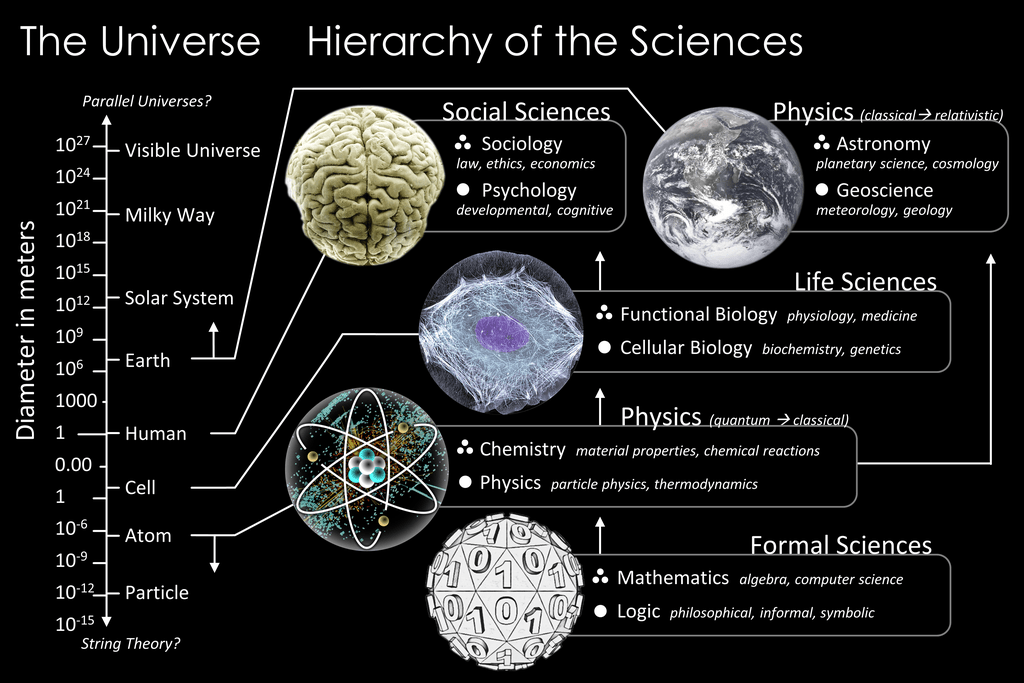Imagine standing on a windswept beach, the salty air stinging your face, as you watch the waves crash against the shore. Or perhaps you find yourself in the heart of a dense rainforest, surrounded by the symphony of chirping insects and the rustle of leaves. These moments, brimming with awe and wonder, are the very essence of what drives natural scientists – explorers of the world’s natural wonders, tirelessly seeking to understand the intricate tapestry of life that surrounds us.

Image: ar.inspiredpencil.com
Natural science encompasses a vast spectrum of disciplines, each dedicated to deciphering the mysteries of our planet and the universe beyond it. From the tiniest atom to the vast expanses of space, natural scientists are the ultimate detectives, uncovering the secrets hidden within the natural world. This article will embark on a journey into the world of natural science, unveiling the fascinating individuals who dedicate their lives to unraveling the mysteries of the universe.
A Journey Through Time: The Evolution of Natural Science
The quest to understand the natural world began long before the term “natural science” was coined. Ancient civilizations, from the Greeks to the Chinese, developed sophisticated systems of observation and experimentation, laying the foundation for the scientific method. Aristotle, considered the father of natural history, meticulously documented the diverse flora and fauna of his time, recognizing the interconnectedness of life on Earth.
But it was during the Renaissance that the scientific revolution truly took hold. Groundbreaking figures like Copernicus, Galileo, and Newton challenged prevailing theories, ushering in a new era of scientific inquiry driven by observation, experimentation, and mathematical reasoning. Newton’s laws of motion and universal gravitation fundamentally transformed our understanding of the physical world, while Copernicus’s heliocentric model revolutionized our perception of the solar system.
The Many Faces of Natural Science: A Diverse Field
Today, natural science encompasses a multitude of disciplines, each with its own unique focus and approach.
- Biology explores the living world, from the smallest microorganisms to the most complex organisms. Biologists delve into the intricacies of life, studying evolutionary processes, genetics, ecosystems, and the myriad ways organisms interact with their environment.
- Chemistry, the study of matter and its properties, forms the backbone of many natural science disciplines. Chemists analyze the composition, structure, and reactions of substances, providing fundamental insights into the building blocks of the universe.
- Physics delves into the fundamental laws governing the universe, exploring concepts like energy, motion, gravity, and the nature of matter and space-time. Physicists strive to understand the universe at its most basic level, pushing the boundaries of human knowledge.
- Geology, a study of the Earth’s history, composition, and structure, reveals the dynamic processes shaping our planet. Geologists investigate rocks, minerals, fossils, and landscapes, unraveling the mysteries of Earth’s past and understanding the forces that continue to mold its surface.
- Astronomy, the study of celestial objects and phenomena, takes us on a journey beyond Earth. Astronomers explore stars, planets, galaxies, and cosmic events, seeking to unravel the mysteries of the universe and comprehend our place within it.
A World of Wonder: Real-world Applications of Natural Science
The impact of natural science extends far beyond the realm of academic research. It plays a vital role in addressing critical challenges facing humanity, from environmental conservation to medical breakthroughs.
- Environmental Conservation: Natural scientists are at the forefront of efforts to protect our planet. Environmental biologists study the intricate web of life within ecosystems, while climate scientists investigate the complex processes driving climate change. Their research informs policies aimed at mitigating pollution, conserving biodiversity, and ensuring a sustainable future.
- Medicine and Healthcare: Biologists and chemists are integral to the development of new drugs, treatments, and medical technologies. By understanding the body’s intricate mechanisms, they pave the way for breakthroughs in disease prevention, diagnosis, and treatment.
- Technological Advancements: From energy production to information technology, natural science fuels innovation. Physicists and engineers work together to develop new materials, devices, and energy sources, transforming our world and shaping the future.

Image: pathshalanepal.com
Unveiling the Mysteries: The Role of Observation and Experimentation
Natural scientists utilize the scientific method – a systematic process of observation, hypothesis formation, experimentation, and analysis – to unravel the mysteries of the natural world. This meticulous approach ensures that conclusions are based on solid evidence and can be replicated by others.
Through careful observation, scientists identify patterns and anomalies within the natural world, leading to the formulation of hypotheses – tentative explanations for these observations. These hypotheses are then tested through carefully designed experiments, aimed at either supporting or refuting the proposed explanation. The results of these experiments, rigorously analyzed and interpreted, lead to either confirmation or modification of the initial hypothesis. This iterative process of observation, hypothesis testing, and refinement is what drives scientific progress and refines our understanding of the universe.
Beyond the Lab: Exploring the World Through Fieldwork
While laboratories play a crucial role in natural science research, fieldwork provides invaluable insights into the natural world. From the rugged terrain of mountains to the depths of the ocean, natural scientists venture into remote and diverse environments, collecting data, observing organisms in their natural habitats, and documenting the intricate connections within ecosystems.
The thrill of discovery, the beauty of untouched landscapes, and the challenge of overcoming obstacles are all part of the allure of fieldwork. It’s a world where curiosity fuels exploration and where the unknown often leads to groundbreaking discoveries.
The Future of Natural Science: Embracing New Frontiers
Natural science is a dynamic field, constantly evolving and adapting to new discoveries and technological advancements. Areas like genetics, nanotechnology, and artificial intelligence are opening up new frontiers for research, offering exciting possibilities to address pressing global challenges.
As our understanding of the universe expands, natural scientists are poised to make even more profound contributions to human knowledge and to shape a sustainable future for our planet. Their tireless pursuit of knowledge, their passion for unraveling the universe’s mysteries, and their commitment to using that knowledge to benefit humanity makes their work essential for a better tomorrow.
Scientist Who Studies Natural Science
Key Takeaways & Call to Action
Natural scientists are the explorers, detectives, and innovators who guide our understanding of the world around us. From deciphering the intricacies of life to charting the vast expanse of the universe, their work impacts our lives in profound ways. Their discoveries fuel technological advancements, address global challenges, and ignite our curiosity about the universe.
Embrace your own curiosity about the natural world! Explore the diverse fields within natural science, visit museums and nature reserves, and engage in citizen science projects. By supporting natural science research and fostering a deeper appreciation for the planet, we can contribute to a brighter future for generations to come.

:max_bytes(150000):strip_icc()/OrangeGloEverydayHardwoodFloorCleaner22oz-5a95a4dd04d1cf0037cbd59c.jpeg?w=740&resize=740,414&ssl=1)




